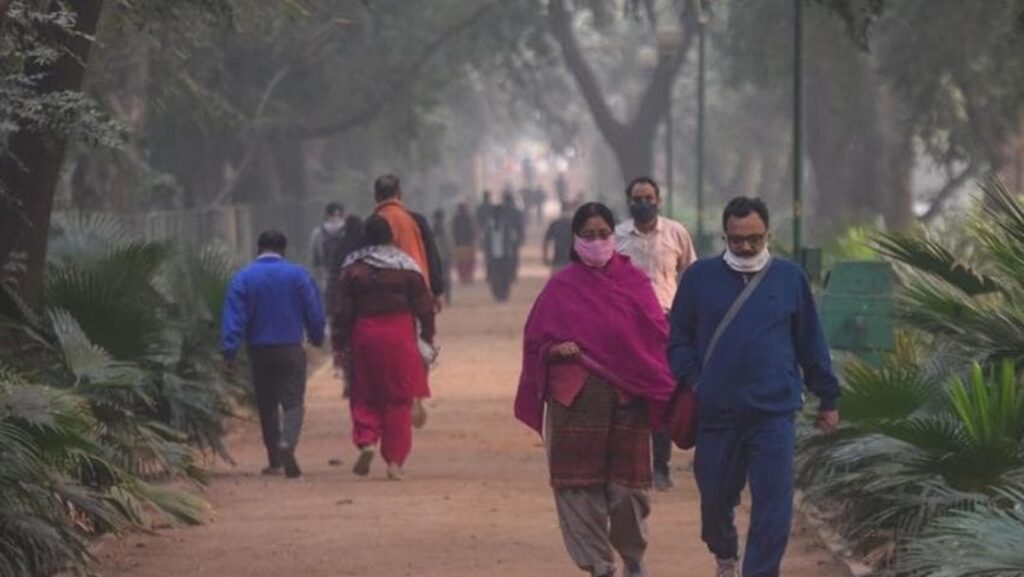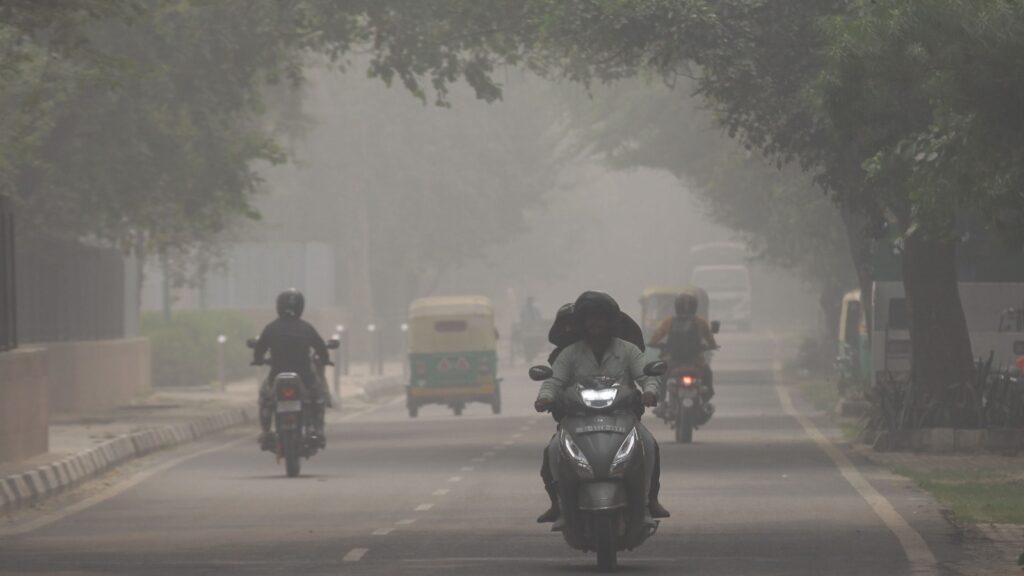With Pune’s air quality slipping into the ‘Moderate’ category from ‘Satisfactory’ and winter chill tightening its grip, experts warn that the combination of cold air and pollution is creating hazardous conditions for outdoor exercise.
Pune’s air quality continued to deteriorate this week even as the city recorded one of its coldest mornings of the season at 12.9°C. The falling temperatures have trapped pollutants closer to the surface, pushing the AQI to unhealthy levels across several neighbourhoods. For a city that prides itself on parks, cycling lanes and early-morning fitness culture, this shift is raising a critical question, how safe is it to exercise outdoors when pollution peaks?
While winter mornings usually draw thousands of runners and walkers to Koregaon Park, Vetal Tekdi, Bund Garden, Aundh and Kalyani Nagar, doctors are now urging caution. According to cardiologists and pulmonologists, the cold + pollution combination causes arteries to constrict, increases blood pressure, and forces the lungs to work harder. During exercise, this effect intensifies as breathing becomes deeper and faster, pulling more polluted air into the system.

What Pollution Does To An Exercising Body
Studies show that outdoor workouts in poor air quality environments don’t just irritate the throat or trigger cough, they alter how the heart and lungs function long-term. Instead of strengthening the respiratory system, high-pollution exercise can strain it.
WhatsApp Image 2025-10-22 at 9.38.32 AM
WhatsApp Image 2025-10-22 at 9.37.37 AM
Key hazards include:
• Increased particulate intake as breathing rate jumps during jogging or running
• Higher heart strain due to cold-induced vasoconstriction
• Greater inflammation in the lungs from ultrafine pollutants
• Reduced exercise benefits on very polluted days, with some research showing that heavy cardio in foul air may even switch from beneficial to harmful

Doctors in Pune report that runners often experience shortness of breath, chest tightness, wheezing or extended fatigue on smoggy mornings, signs that the air may be doing more harm than the workout is doing good.
Why Pune Is Feeling It More Now
The city’s pollution spike is tied to winter inversion layers, construction dust, traffic congestion, and stagnant air during early mornings. The coldest hours typically around sunrise, often show the worst AQI readings. This means Pune’s most popular exercise window is also its most polluted one.
How To Stay Active Without Damaging The Heart And Lungs
Health experts emphasize that exercise is still essential but it must be adapted to the air conditions.

Smart strategies include:
- Check AQI before stepping out
If readings are above 200, shift the workout indoors or avoid outdoor cardio altogether. - Change timing and location
Choose late morning or early evening slots on cold days. Avoid roadsides and flyovers; move to greener, less polluted pockets. - Modify intensity
Opt for walking, mobility, yoga or strength training instead of high-intensity runs on polluted mornings. - Mask when necessary
N95 or KN95 masks may reduce particulate inhalation, though they can make heavy cardio difficult. - Listen to your body
Stop immediately if you feel dizziness, chest discomfort, coughing spells or unusual breathlessness. - Track patterns
Maintaining a workout-and-AQI diary helps detect if poor air days consistently impact your stamina or recovery.
The goal is not to abandon fitness but to plan intelligently. Research shows that staying active still reduces long-term mortality even in polluted cities. The key is to avoid high-intensity workouts during very poor AQI windows, especially for sensitive groups such as children, older adults, asthma patients, and those with cardiovascular conditions.
As Pune moves deeper into winter with colder mornings ahead, residents will need to evaluate the “clean enough window” for outdoor exercise daily. Balancing cardiovascular benefits with respiratory safety is now part of the city’s winter routine.
Disclaimer: This article is for general informational purposes only and does not replace professional medical advice. Individuals with respiratory or cardiac conditions should consult their doctor before exercising outdoors in polluted air.


Post navigation
